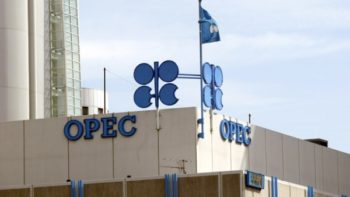
The first Organization of Oil Exporting Countries (OPEC) led global production cut in 15 years underpins an emerging but fragile recovery, with 2017 set to see a huge stock overhang disappear by the third quarter.
When this happens the market will move from over-supply to a more balanced supply/demand situation according to S&P Global Platts Analytics.
With Saudi Arabia and Russia joining forces to cut output by almost 800,000 b/d in the first six months of the year, and other oil producers under pressure to comply with their share of cuts to bring the total close to 1.8 million b/d, there remains a great deal of optimism in some quarters that the pace of rebalancing will be accelerated.
In others, there is skepticism that OPEC and its non-OPEC associates can really deliver.
S&P Global Platts however noted that how fast the market rebalances will depend on the discipline to enforce and maintain the cuts across a disparate group of oil producers, especially with crisis-ravaged OPEC members Libya and Nigeria exempted from the agreement, but with the potential to see large additions in output.
Meanwhile, spending on exploration and production (E&P) by oil and gas companies are poised to rise globally by 5 per cent, even as offshore spending may continue to decline next year, a midyear global spending survey of over 200 companies conducted by Barclays and released yesterday revealed.
The survey conducted over the last 5 weeks through August 2016 based most oil companies’ full-year 2016 upstream spending on $50/bbl Brent and $45/bbl West Texes International.
“International spending in 2017 to be flat to up single-digits based on our preliminary estimates as the IOCs’ continued focus on dividends, capital preservation and balance sheet strength will outweigh any opportunities to increase spending. Our 2017 estimate assumes a 5-10 per cent increase in spending from NOCs, offset by declines for all other customer types which are expected to see declines for a 3rd straight year,” said Barclays.
Meanwhile, oil prices have recovered after a more than two-year slump caused by a glut due to U.S. shale oil flooding the market.
Prices have risen about 21 percent since the OPEC, which accounts for a third of global oil output, signed an agreement in November to curb supply.